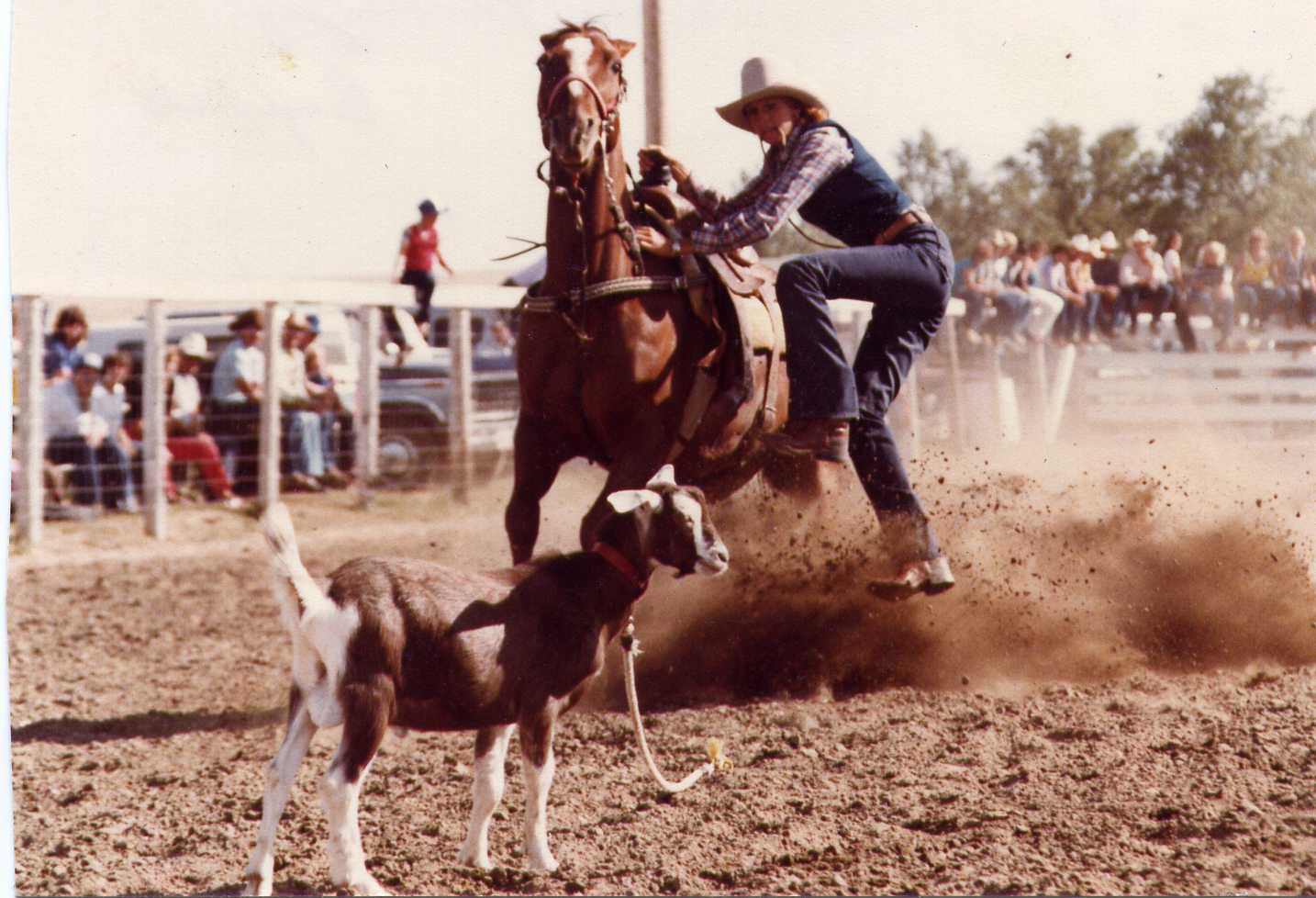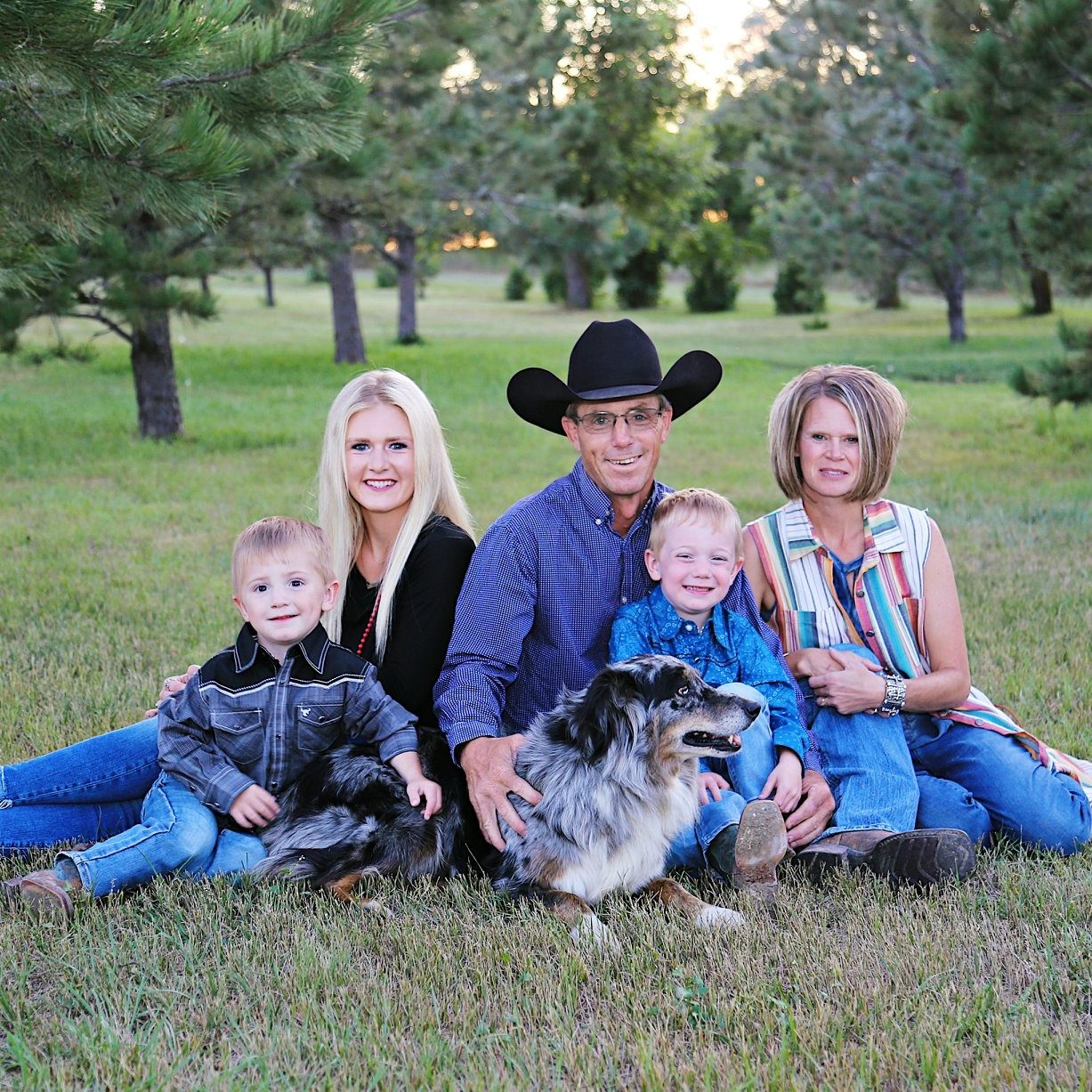Rodeo clinics offer a detailed breakdown of event techniques, providing step-by-step instructions on how to master specific skills. These clinics deliver a hands-on learning experience within a one or two-day timeframe, equipping athletes with the necessary tools and knowledge to practice their skills at home. They have become a common training tool amongst rodeo athletes across the nation.
However, 45 years ago, rodeo clinics were not a common concept. Debbie Gunderson from Buffalo, South Dakota, ventured into new territory through the rodeo world by starting goat tying clinics. This novel and exciting idea quickly gained popularity as athletes sought ways to enhance their skills.
Debbie Gunderson, founder of Ty Tuff, along with Kayla Nelson Spickelmier, partner of Ty Tuff also from Buffalo, SD, outline the foundation’s history and its evolution over the past 45 years.
The creation of the Ty Tuff technique was developed with a vision to advance the skills and times of the goat tying athletes. Share the journey you went on to build the foundation for Ty Tuff.
“I initially had no plans in creating a specific technique for goat tying or building a business, it just happened”, explained Gunderson, “I navigated through the needs presented to me, which led to unexpected opportunities, not realizing I was building a business out of my passion.”
“One year in college we were watching the ten days stretch of the NFR, where a calf roper’s performance caught my attention. I started taking detailed notes on his performance, carrying it over into my goat tying practice. I began imitating the techniques during my college rodeo career, resulting in success in my junior and senior year of competition,” added Gunderson.
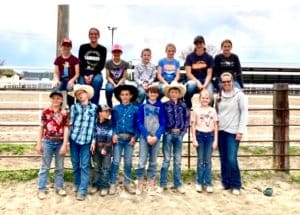
Ty Tuff clinic athletes. [Photo: submitted]
To keep the rodeo athletes sharp in their skills in the off season or the ability to practice outside the arena, you designed the Ty Tuff dummy. Recount with us the process of your creation and how the dummy contributes to the athlete’s success.
Gunderson conveyed, “In my early years coaching various clinics, I realized something was missing; a tool for athletes to practice on that would allow them to refine the techniques they were taught. I designed the first goat tying dummy for use at clinics, which eventually evolved into a tool that tiers could have at home to continuously perfect their skills. It took several iterations to design a dummy that served the purpose of practice. Eventually, we developed a prototype in collaboration with a company; Smith Brothers called it the ‘Goat of the Century’ and it took off from there. To this day, I build the goat tying dummies in my shop and ship them out to international retail companies,” stated Gunderson.
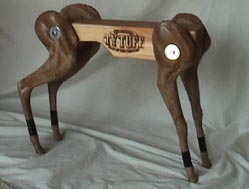
The Ty Tuffy practice dummy. [Photo: submitted]
Gunderson recollected, “I experienced mental toughness in high school, not realizing what I was doing. When I missed a calf, I would get frustrated, which made my horse nervous. I soon realized that my emotions were affecting my horse, so I did a test drive controlling my emotions, and to my surprise it made a huge difference in my success in the arena. To add to the trial, I started asking myself ‘Why’ when I missed a calf, pushing myself to look inward and make necessary changes.”
Spikelmeir shared her journey, stating, “Mental toughness became important for me as an athlete in high school when I discovered that achieving your goals requires more than just skills. This belief deepened further after my first ACL surgery my freshman year of college. The rehabilitation and recovery were incredibly tough, requiring an immense amount of mental training. Overcoming both physical and emotional hurdles was essential to returning to my competitive level pre-injury. Undoubtedly, this challenge sharpened my mental skills, contributing to winning two National Collegiate titles.”
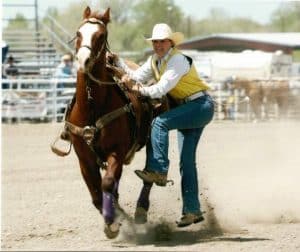
Kayla Nelson Spikelmeir, rodeo athlete & instructor. [Photo: submitted]
– Group discussions and one and one sessions
– Introducing physical drills that emphasize focus, concentration, and consistency.
– Providing references for books and additional resources on mental toughness.
– Offering mental toughness books as prizes during clinics.
– Bringing in mental toughness coach, Donene Taylor.
The Ty Tuff technique was established over 45 years ago. Like any sport, goat tying has evolved over time, promoting a shift to enhance the original vision. How have Ty Tuff clinics transformed, and what aspects have remained true to the foundation they were built on?
Gunderson and Spikelmeir both communicated that mental toughness discussions are now integrated comprehensively, with more one-on-one sessions helping students identify and address their mental game struggles. The techniques have been fine-tuned to ensure quicker and more consistent groundwork and dismounting. New drills focusing on foot speed, feet placement, and body control from dismount to goat have been incorporated.
Despite these transformations, certain aspects of Ty Tuff clinics have remained steadfast. They continue to uphold the basics upon which the Ty Tuff style was founded. The mission remains to inspire and encourage students both in and out of the arena. The motto “RIDE HARD AND TY TUFF,” signifies tying with grit, aggression, determination, intensity, and control, continues to resonate as a guiding principle.”
Every instructor aims for their students to acquire valuable skills and knowledge that they can use to enhance their performance. What is the lasting impact you hope your athletes are taking away?
Spikelmeir added, “I commit myself at every clinic to connect with each student to inspire, encourage, and help create a BIG, BOLD self-belief within themselves; along with providing a positive learning environment in hopes that I can leave them with an influential impression that will not only help the student with success in the rodeo arena, but also in the arena of life.”
“It is our ultimate goal that they will take responsibility, learn from their mistakes and situations, have a positive attitude, set goals, believe in themselves and apply them to their personal lives.”
—Ty Tuff’s Mission Statement.

